Does Augusta have too many parks? City considers cutting ties with some
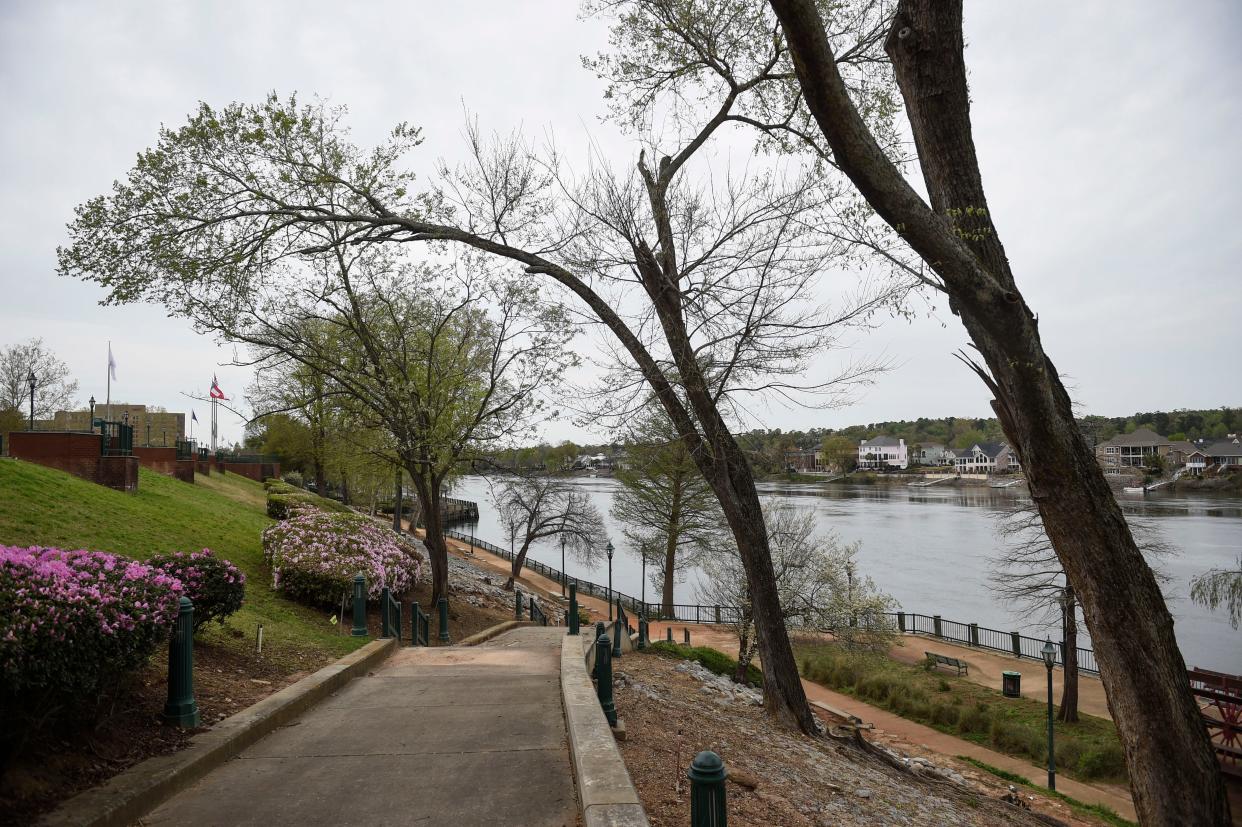
Augusta’s 60-plus parks and facilities are at a turning point. Facilities that have been in use for decades, in some cases as many as 150 years, are expensive to maintain. Is it time to get rid of some and focus limited resources on those that remain?
That was the question posed by Augusta Parks and Recreation Director Maurice McDowell at a recent Augusta Commission workshop.
"If the commission is looking at how to save money," he said, "I don't think you'll be trying to get rid of your own property before you take a look at some of the things that you are being responsible for, that you don't have ownership of."
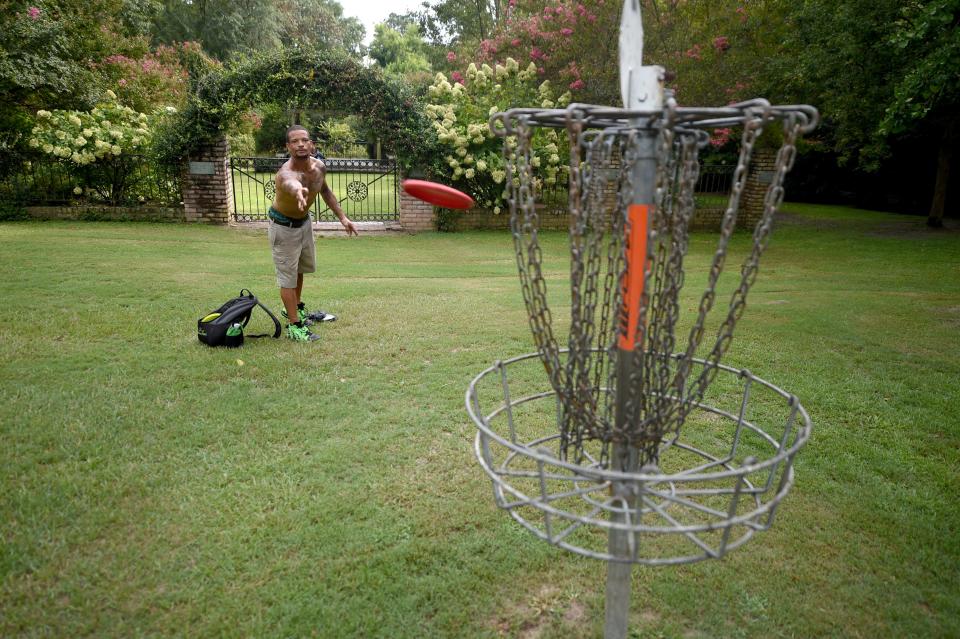
The report recommended Pendleton King Park, which is owned by the Pendleton King Park Foundation be "divested," with city responsibilities to cease, a move that would save Augusta $259,930, McDowell said. City budget documents say the annual budget for Pendleton has been $100,000 less than that each of the past four years, but McDowell said the figure includes some needed capital spending.
Read more: Future of Pendleton King Park again stirs concern as city looks to divest
Rob Dennis, chairman of the foundation, said even if the city ends its partnership with Pendleton, the park will never be sold. "There would be a number of consequences related to not having a partnership with the city, but selling the asset would not be one," he said.
HOW many parks?
With a total budget of $16.2 million, Augusta Parks and Recreation employs approximately 70 people to maintain 1,500 acres of park space, although the department's responsibilities don't end there.
A 2016 master plan catalogued Augusta's vast array of 60-plus parks and recreation facilities. The plan determined that today Augusta has park space consisting of:
12 mini-parks of an acre or less
18 neighborhood parks, which have an ideal size of five acres
Nine community parks ranging around 15 acres serving multiple neighborhoods
Three regional parks of 50 acres or more: Diamond Lakes Regional Park, at 296 acres, Lake Olmstead Park and stadium, at 96 acres and Pendleton at 64.
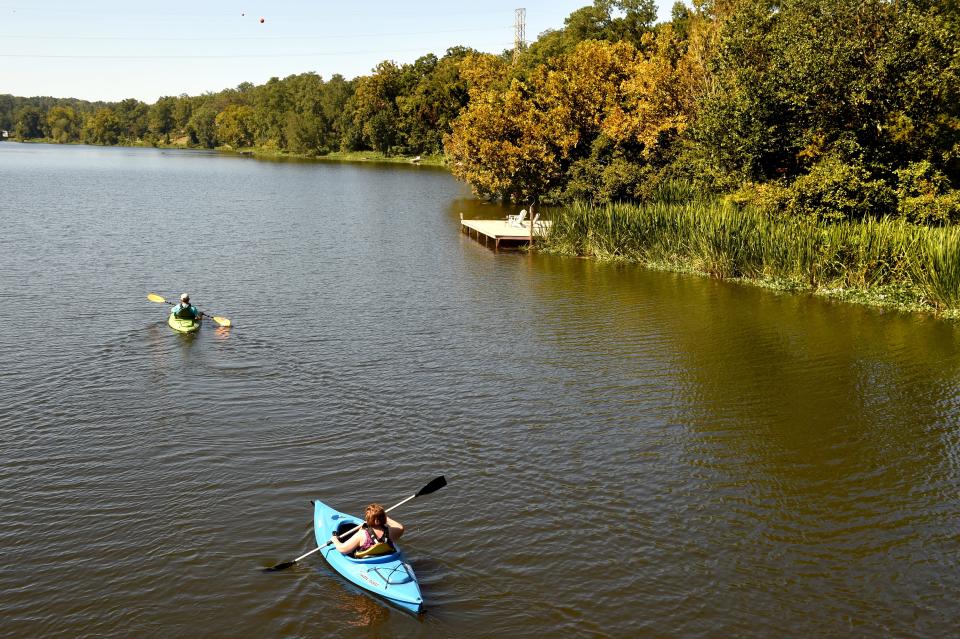
Why Augusta has so many is largely a mystery. Over generations, the government may have tended to be too willing to take on the additional maintenance duties, McDowell said.
"Way back when, whenever someone had some greenspace and they said 'hey, we want a park here,' I think the city said 'yes' to it," he said. "I don't think anyone said 'no' for a long time."
Don't close, invest
The Trust for Public Land believes every resident should be within a 10-minute walk of a park. Since Augusta is nowhere close to that goal, it’s probably not the time to consider divesting or decommissioning parks, said George Dusenbury, Georgia state director for the trust. He’s also the former Atlanta parks commissioner and a Decatur city commissioner.
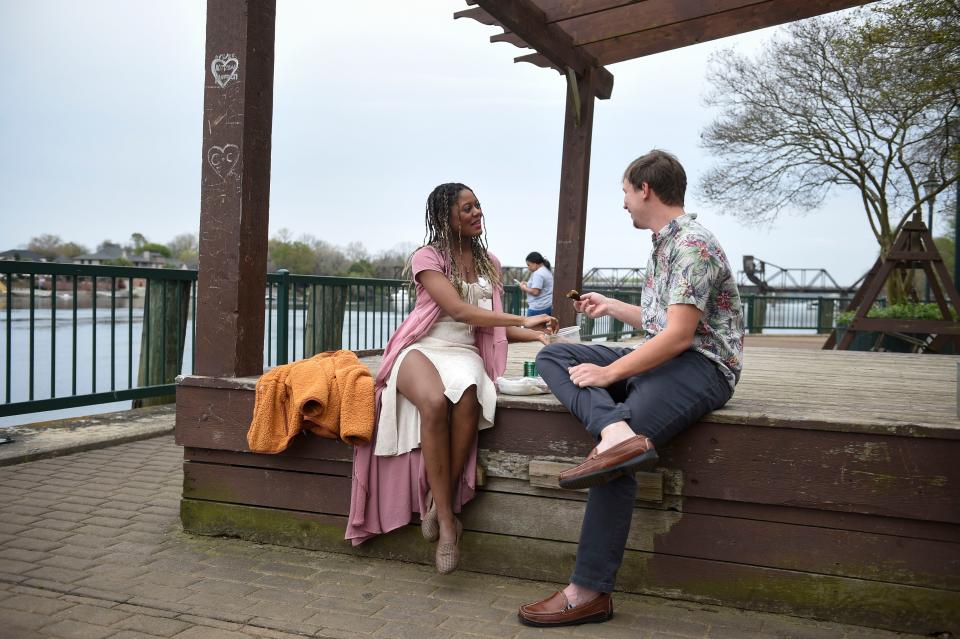
“My core message is that cities and counties should be spending more on their parks system, and you get what you put into it,” Dusenbury said.
And while some governments struggle with parks, many are successful, he said.
"Cities across the nation that are competing for residents, that are competing for business, that are competing for investment, they’re investing in their parks,” he said.
Solutions other Georgia governments have adopted include creating a parks authority, city and school partnerships, or a business or community improvement district. In Atlanta, a public housing authority partnered with Atlanta parks to blend affordable housing into existing park space, he said.
“What we’re seeing is cities wanting to integrate housing and greenspace,” he said. They might ask, “how can we use that park land then to make that community more resilient?”
Creating an authority can help enable the "nimbleness" needed to run a local recreation and parks department, he said.
Also: 'Love locks' adorning Savannah Rapids Park bridge likely to stay
Partnerships already have existed in Augusta. 163-year-old Hickman Park is privately owned but primarily maintained by the city. Doughty Park, near the Dogwood Terrace public housing community, formerly benefited from a partnership with Augusta Housing Authority, according to McDowell's presentation.
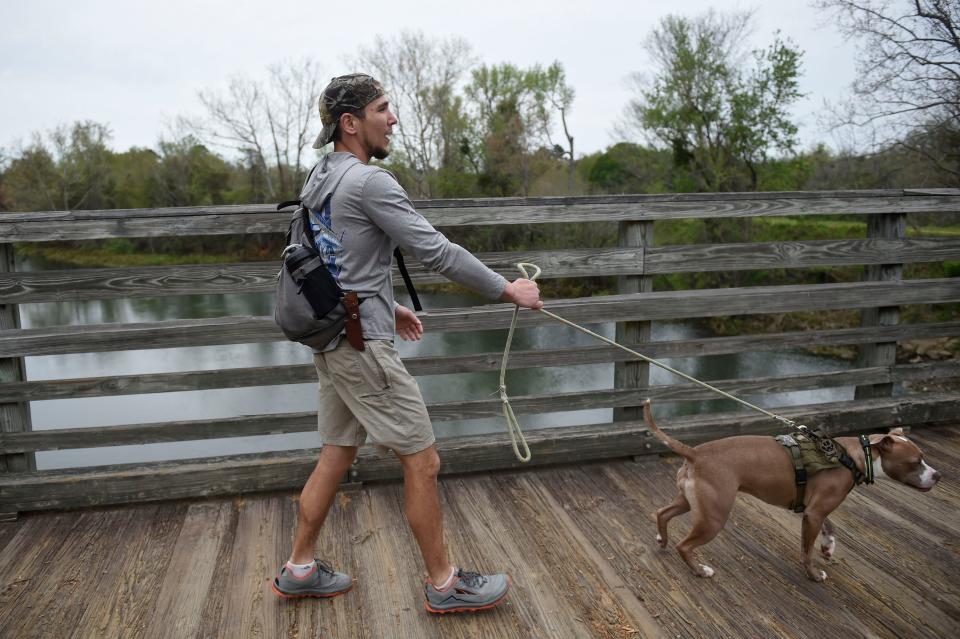
Community buy-in vital
Changing city parks should never be exclusively about dollars and cents, said Cynthia Rhodes, a business developer and Augusta parks enthusiast. It's also about quality of life and buy-in by Augusta residents, she said.
Rhodes believes that Augusta sometimes fails to seek public input or secure community buy-in and instead waits on public tax dollars to support the things it cares about.
"Maintaining a park is not just the responsibility of the government, but of the stakeholders within the community it serves," she said.
Rhodes said among her favorite Augusta parks is Pendleton, where she grew up visiting for its nature trails, pond, the tank parked at the park and its dog parks. She prefers the downtown Riverwalk for walking and events and the Henry Brigham Center for its playground for her grandchildren.
For the master plan, about 600 Augusta households who responded to a survey ranked the parks by use and importance. The top three in both areas were the Augusta Common and Riverwalk together, the Lake Olmstead Park-Julian Smith Casino complex and Diamond Lakes Regional Park. Pendleton wasn't a survey option, although the plan looked at its conditions.
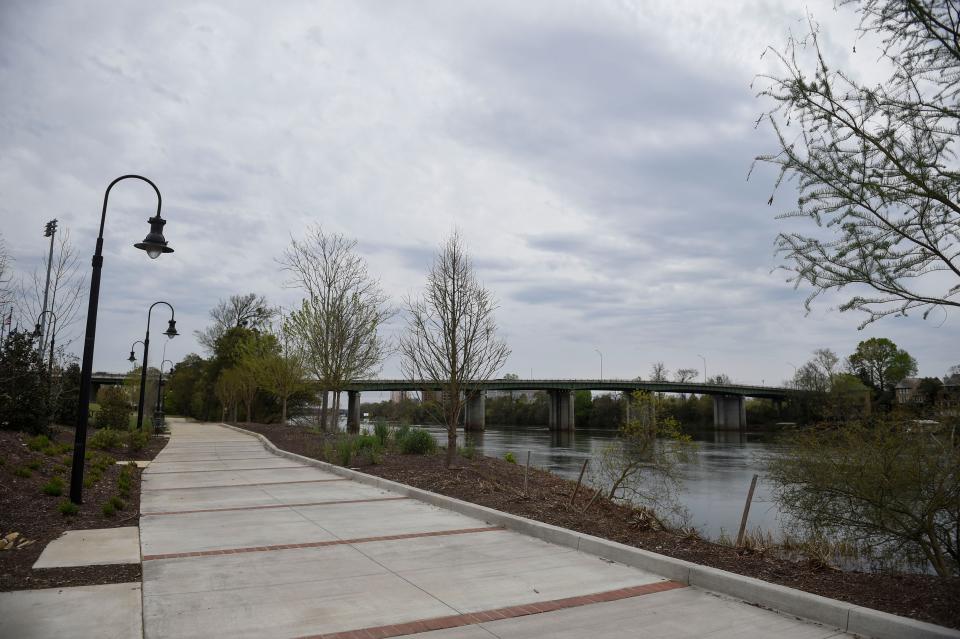
How much does park management cost?
Compared to its newer-development neighbors, Augusta spends more than three times as much on recreation.
With a department of 54, Columbia County Recreation budgeted $3.4 million to operate 17 parks and recreation facilities, which span 1,620 acres, according to budget and other county documents. Adding Savannah Rapids Park to the mix brings the budget to $3.8 million, or $24 per person overall.
Cassidy Harris, public relations manager for Columbia County, said all its departments operate on "an efficient and lean budget" but a true answer for recreation lies with what a county offers. Over the last fiscal year Columbia more than 4 million visit its parks, with the most going to Savannah Rapids.
North Augusta budgeted $2.9 million for its 19 parks and facilities, or $124 per person counted in the 2020 census, but budgeted taking in $1.7 million from sports and rental fees and concessions, which could reduce per-person spending to $50.
Augusta's $16.2 million recreation budget covers more than parks and recreation, McDowell said. A series of government restructurings added funding to the recreation budget for libraries, museums, cemeteries, the arts and landscaping the medians of streets such as Greene, Broad and Henry. Removing those drops the recreation budget to around $12.2 million, or around $60 per person.
Columbia County and North Augusta are not an "apples to apples" comparison with Augusta, McDowell said. What sets Augusta apart is its total number of facilities, their age and the populations they serve, he said.
Meals, scholarships and golf in the budget
On Augusta park space are located some 18 community centers, each assessed in the master plan, and approximately six senior nutrition programs conducted at the centers.
The senior nutrition programs – an outgrowth of Meals on Wheels – have caps on their state and federal funding, while Augusta has no limit on the number of residents who can participate, McDowell said. In addition, most Augusta kids are eligible for and receive recreation "scholarships" that enable them to participate in sports and camps free of charge, he said. More than 42% of Augusta children 11 or younger live below the poverty line.
Augusta's recreation assets also generate some revenue, but not enough to sustain them.
The community center facilities are hugely popular as rental venues and along with golf, tennis and swimming programs are the largest revenue-generators in the recreation budget. The Diamond Lakes Regional Park campground alone generated $109,000 last year, and Augusta Municipal Golf Course took in $351,000, according to budget documents.
The costliest community center to operate is at Diamond Lakes, whose combined budget for its park space, tennis complex, campground and community center is close to $1 million. Budget allocations for larger assets include:
People, CVBs love parks
When the online advertising publication Money.com called Evans, Ga., the "best place to live in America," it cited the appeal of sprawling Evans Towne Center Park, where families could ride bikes, use the splash pad, take their pets to run and attend performances at Lady A Pavilion.
Augusta Convention and Visitors Bureau promotes Augusta's large recreation assets in its Destination Blueprint, a master plan for increasing the city’s appeal to visitors.
“We certainly promote our outdoors, our waterways, and walking/cycling trails,” said Bennish Brown, CVB executive director. “Green spaces and public parks are valued as quality-of-life and quality-of-place assets.”
Among the assets the CVB touts are several popular parks not operated by Augusta Parks and Recreation – the Augusta Canal National Heritage Area, Springfield Village Park, Aqueduct Park, Phinizy Swamp Nature Park – as well as city-owned Diamond Lakes Regional Park.
Older parks need more maintenance
One major difference between Augusta's parks and those of Columbia County and North Augusta is their age. Columbia's Evans Towne Center and Lady Antebellum Park were completed in 2011 and Gateway Park opened in 2020. North Augusta's Brick Pond Park opened in 2008. Its Riverview Park Activities Center was built in 1994, then renovated and expanded in 2018. Augusta's newest park complex, Diamond Lakes, opened in 1999..
"My biggest issue is the age of our facilities and the amount of maintenance it takes to maintain those facilities," McDowell said.
Built in the late 1960s and early 1970s, heavily-used Bernie Ward Center-Fleming sports complex, the W.T. Johnson Center, Doughty Park and May Park are among facilities showing their advanced age, McDowell said. Also visibly aging is the Augusta Aquatic Center, built in 2000 for the Georgia Games, he said.
Ultimately, a poorly-maintained park can become “a self-fulfilling prophecy,” Dusenbury said, in which broken infrastructure contributes to crime or other problems.
Other Augusta Recreation facilities are older, but preserved as historic assets. The Julian Smith Casino opened in 1936 and has made Historic Augusta's endangered properties list, but is lined up for eventual sales-tax-funded work. The Old Government House, built c. 1801, is also part of Recreation's repertoire. Both are popular as rental venues.
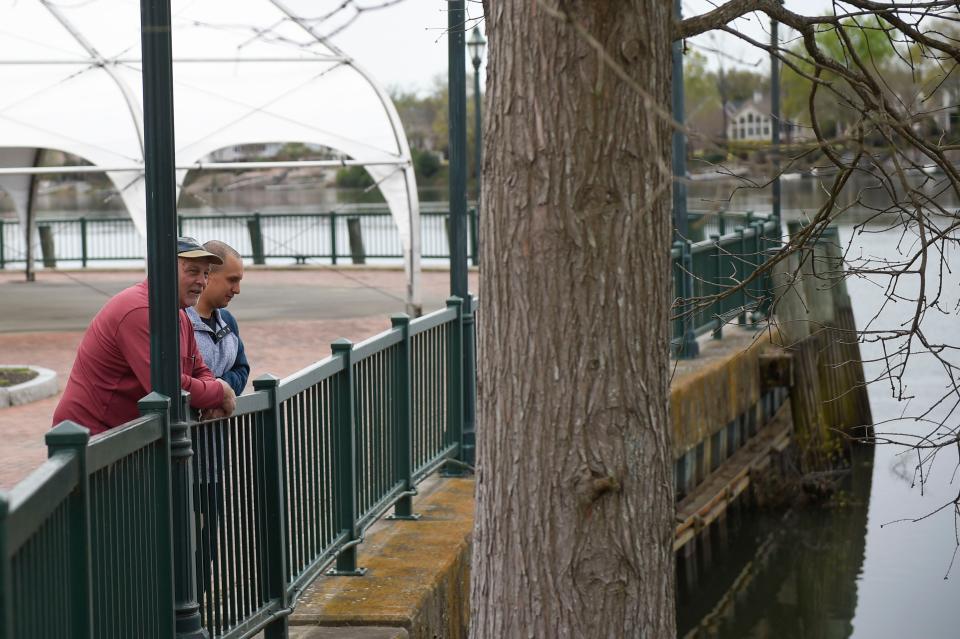
Saying goodbye to Augusta parks?
The 2016 master plan identified other parks Augusta could dispose of and listed ways to do it, such as giving them to Augusta Land Bank Authority for redevelopment, "mothballing" to vastly reduce maintenance, converting them to another government purpose, partnering with other groups on their upkeep or selling them.
The plan recommended several that appeared on McDowell's list, but not Pendleton or two others not owned by the city, Hickman Park and Lock and Dam Park.
Giving up Hickman and its 1940s-era clubhouse leased to a children's museum, could save the city the $15,560 it will cost this year, according to McDowell.
Lock and Dam Park, owned by the U.S. Army Corps of Engineers beside New Savannah Bluff Lock and Dam, could be repurposed as a rental area if its poorly-maintained facilities were improved, he said. The city plans to spend $31,100 on the park this year.
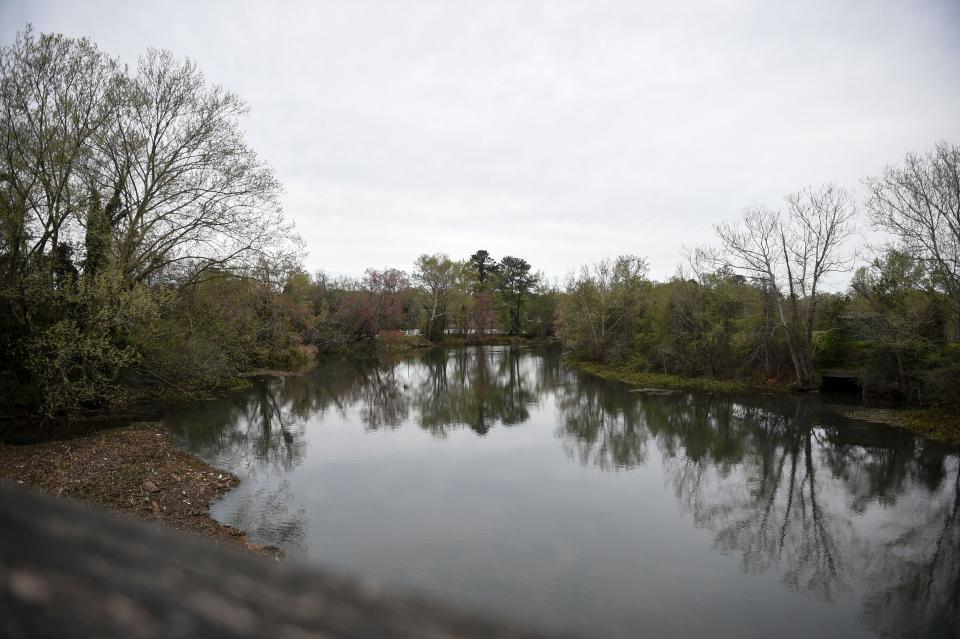
Overall, the Pendleton savings was more than half the $459,591 McDowell said Augusta could save by relinquishing maintenance of the list.
Other parks on the list were small and little-used, or close to other parks. They included Alexander Barrett Park, the grassy fenced wedge between Wheeler Road and Royal Street; Meadowbrook Park in the Meadowbrook community of south Augusta; Bedford Heights in the National Hills area; Vineland Park in the Vineland neighborhood and Heard Avenue Park, which is essentially a large grassy median with picnic tables on Heard Avenue.
Despite the unease resulting from his proposal, McDowell said the conversation is worth having. Augusta is far from selling parks and hasn't even had any of the properties appraised, which might be a next step, he said. The commission hasn't taken any action on the proposal but is expected to take it up later this month.
"I think that’s a healthy debate for the city and for the citizens of Augusta to have, to understand it from that perspective," he said.
This article originally appeared on Augusta Chronicle: Should Augusta GA get rid of some public parks?

